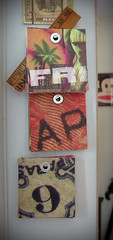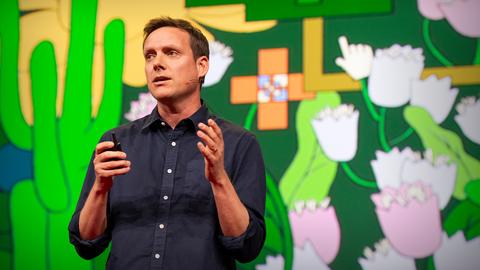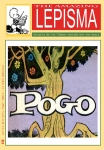In 1962 Albert von Szent-Gyorgyi, stated in Irving Good, The Scientist Speculates that "Discovery consists of seeing what everybody has seen and thinking what nobody has thought." Which to me, puts into words the secret formula for innovation and fresh ideas in general. It's the justification for a nice long walk instead of a forced brainstorming session, the long weekend at the beach instead of the office and simply taking a left where you generally take a right. It's up to you. Why, as the Material girl put it, "Strike a Pose." when you know deep down that it's much more interesting to Juxtapose? John Schwarts focuses on two recent entries to the cultural fold and came up with this nice little chunk of food for thought...
Feel the ripple in the zeitgeist? Two new slogans are busily burrowing their way into popular culture.
Steven P. Jobs introduced one last week: "Life is random." It's attached to the iPod Shuffle, Apple's teeny new music player. The second comes from Malcolm Gladwell, a writer known for seeing revolutions in small things. The slogan is "Blink, don't think," and goes with his new book, "Blink: The Power of Thinking Without Thinking," which argues that our instant decisions can be better than those born of long contemplation.
These two marketing aphorisms - ad-phorisms, if you will - pull so insistently at the brain that they feel more like an affirmation than a pitch, and bear a slight tang of wisdom.
The iPod Shuffle is, like other Apple products, sleek and inviting - that characteristic yin/yang blend of hot and cool. Smaller than a pack of gum, the $99 version stores just 120 songs, a fraction of the capacity of a full-fledged iPod. But that's part of the point.
Sure, you can program the Shuffle intricately via the computer, your inner disk jockey drawing up precise playlists so that, say, if you are suffering a happiness drought, you can tell the little stick to play Louis Armstrong's "What a Wonderful World," and then the even sweeter version by Israel Kamakawiwo'ole, the enormous Hawaiian ukulele legend - who blended it with "Somewhere Over the Rainbow" - and then demolish those remaining blues with the punk-rock version by Joey Ramone. (It's like downing a shot of serotonin with a Dexedrine chaser.) But clever Apple knows that most users will simply want the gadget to grab songs out of the main computer's library and then play them in an order of its choosing. Random. Like life.
Apple, with the attitude of an artist and the eye of an anthropologist, has asked: How do we listen to music? What do we want from it? A response from the company, and its millions of customers, is that music is a kind of ambient grace, which blocks out the cellphone jabber on the train, the honking horn on the walk to the grocery store. And the result is that little white earbuds have become ubiquitous around the country.
"Blink" is also a creature of the moment. It says that a snap judgment is often smarter than a considered one. Mr. Gladwell speaks of a "second mind" that "sends its messages through weirdly indirect channels, like the sweat glands on the palms of our hands." He adds: "It's a system in which our brain reaches conclusions without immediately telling us that it's reaching conclusions."
Both slogans speak to the feeling that there's too much data and not enough knowledge, too many choices and not enough good ones, says Seth Godin, an author who focuses on marketing issues. "This desire to completely control the environment has started to unravel in the past five years," he said.
The shock from the Sept. 11, 2001, attacks in part explains that development, he said, but so do the billion Web sites and millions of blogs, tens of thousands of books in the store and hundreds of television channels. This cacophony, he said, has led the culture to the belief that, "You couldn't control all the choices; you couldn't control all the noise."
The alternative offered by Mr. Jobs and Mr. Gladwell, is not quite, "Don't worry, be happy," but a slightly more nuanced: Relax. Yes, life is random. But you can enjoy the ride.
These two products come from different eras - the book from the prehistoric world before silicon, and the music player from five minutes ago - but both suggest to consumers that there is a way to remain thinking, feeling people in a world overgrown with data, options and demands, said David Bennahum, who writes about technology issues for the online magazine Slate and for Wired magazine.
"They are two things that say your rational process of making sense of things is a model that may be obsolete," he said. " 'Life is random' is a really great way of shrugging your shoulders in a Buddhist way of nonattachment."
Intuitive improvisation is the secret of genius.
Unknown
Ob La Di Ob La Da.
Well Known: Lennon McCartney
That's Right,
HMK
Thanks to John Schwarts at The New York Times
Subscribe to:
Post Comments (Atom)




























































Your blogsite is becoming some near-religious temple of all things Mac.
ReplyDeleteThe time is approaching when the return of the oringinal master, the Commodore 64 will mark the Dawn of the Machines. Your tiny Mac with iTunes will be crushed!